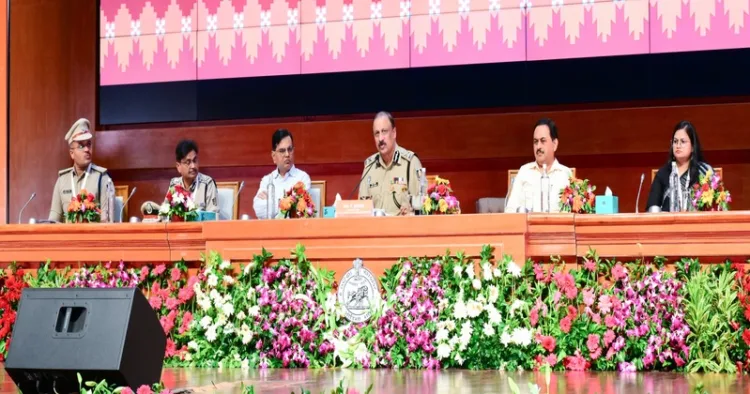BHUBNESWAR: The Odisha Government is taking decisive action to tackle the Maoist issue. A two-day joint conference of District Magistrates and Superintendents of Police wrapped up on Saturday in Bhubaneswar, during which a comprehensive strategy and roadmap were developed to eradicate the problem.
The Director General of Police for the state, YB Khurania, stated that the Maoist issue in Odisha has significantly decreased over the past few years. The Odisha Police, in partnership with Central Security Forces, has been effective in reducing Maoist violence. Many districts are now Maoist-free, and the influence of Maoism is confined to only a few areas. If the District Magistrate and the Superintendent of Police in the affected districts collaborate closely, the Maoist problem can be eradicated at its roots. Efforts will be directed towards achieving this goal in the days ahead.
On the other hand, S. Devdutt Singh, Additional Director General of Police (Operations), stated that a special roadmap has been created for the development of areas affected by Maoist activity. He also noted that all Maoist activities are being closely monitored.
During the conference, Sanjay Singh, the Principal Secretary of the Rural Development Department, stated that the absence of government schemes often correlates with the emergence of Maoist problems. To address this issue, the state government’s Rural Development Department is developing and implementing a comprehensive plan to enhance the road connectivity and communication systems in Maoist-affected regions. In areas where road conditions are poor, the state government is executing the Chief Minister Road Scheme to construct new roads.
During the conference, Sushil Lohani, the Secretary of the Panchayati Raj and Drinking Water Department, announced that the state government is developing a special scheme for panchayats in Maoist-affected areas. The Central and State Governments are collaboratively running various programs to improve the livelihoods of residents in these regions and provide essential services. It is crucial for the District Magistrate and Superintendents of Police to build trust with the local communities through the effective implementation of these initiatives.
In this meeting, we not only discussed the strategy to end Maoism but also examined in detail the issue of infiltration via sea routes. Specifically, we shared information regarding the operations of marine police stations and other relevant details related to waterway infiltration.
In addition to anti-Maoist strategies, the meeting addressed coastal security concerns, particularly infiltration through sea routes. Key discussions centered on marine police stations’ effectiveness and intelligence on waterborne infiltration tactics.



















Comments